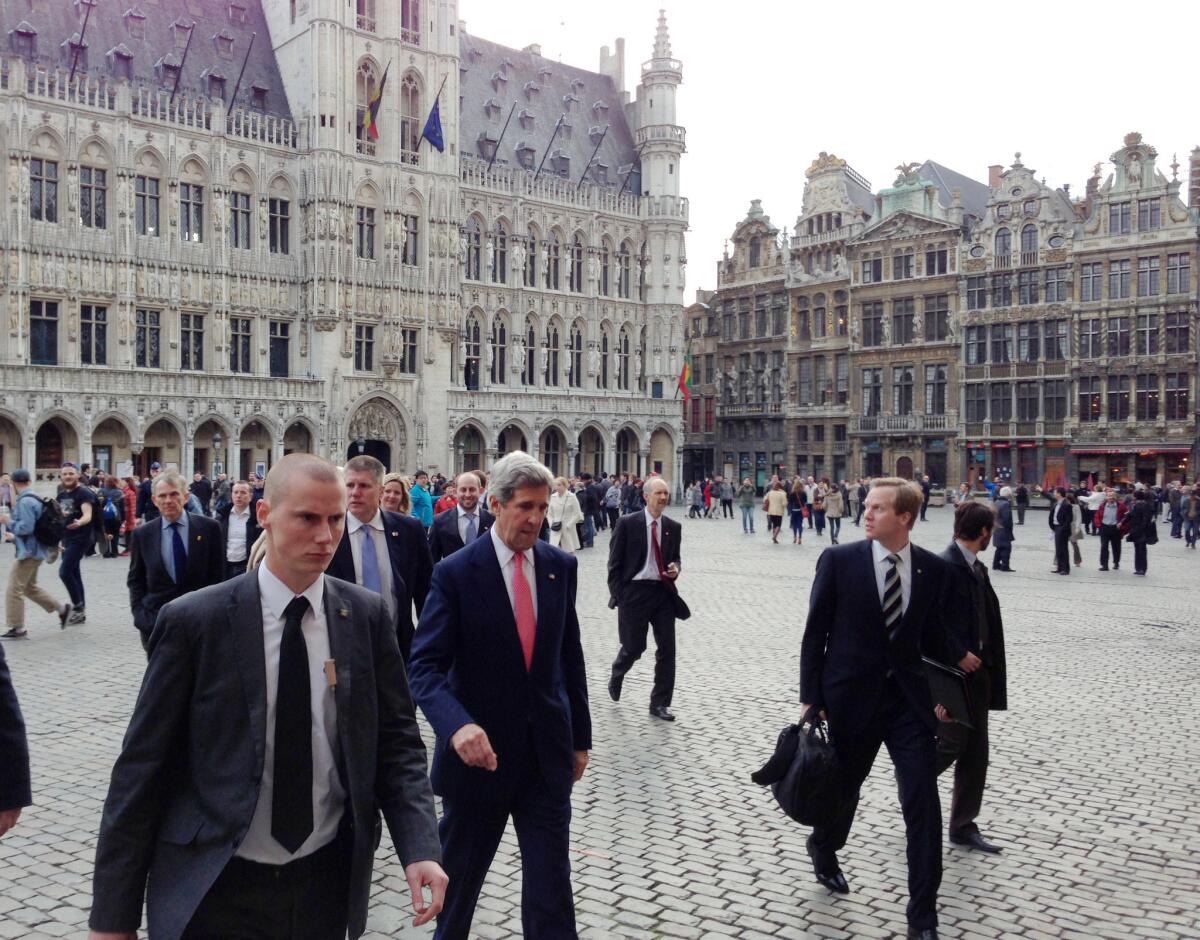Kerry says NATO needs plan for Syrian chemical weapons

BRUSSELS — Secretary of State John F. Kerry urged nervous NATO allies to begin considering how they would respond if the Syrian regime uses chemical weapons in its civil war.
Though NATO officials insist they are far from any military involvement in the 2-year-old conflict, Kerry told officials of the Western military alliance Tuesday that they needed to “carefully and collectively consider how NATO is prepared to respond to protect its members from a Syrian threat, including any potential chemical weapons threat.”
He noted that the alliance has already begun planning for Syria contingencies, and declared that such preparation was “an appropriate undertaking for the alliance.”
Kerry’s remarks to the North Atlantic Council, NATO’s political arm, came when the alliance is deeply conflicted over the war, alarmed at the mounting civilian casualties but eager to minimize any involvement in yet another conflict in the Middle East. NATO officials have insisted to reporters before this week’s ministerial gathering that they would not make any decisions at the session that would take them closer to a military role.
And Kerry emphasized again that the U.S. goal is to solve the conflict through negotiations among the opposition and the regime, once its leader, President Bashar Assad, is dislodged from his post.
Yet the issue of a chemical weapons attack looms larger every week. Britain and France believe there is reason to suspect Assad has used chemical weapons, and have asked the United Nations to investigate.
A senior Israeli official Tuesday cited evidence of chemical weapons use.
President Obama has declared that chemical weapons use by Assad was a “red line” and a “game changer,” to which the United States would unquestionably respond.
And dealing with the chemical weapons stockpile – reportedly the third largest in the world – could be an enormous task. One Pentagon study estimated it could require 70,000 troops to respond, though other analysts contend that figure is inflated.
Anders Fogh Rasmussen, the NATO secretary-general, deflected a reporter’s question on whether Syria has used chemical weapons. But in his comments to the group, he, too, seemed to hint that the alliance – created to defend Europe against the Soviet Union – could be drawn into dealing with the spillover effects of the war.
Rasmussen said that “we can all see that the situation in Syria is getting worse. And we cannot ignore the risks of a regional spillover, with possible implications for allied security.”
Europe is divided over how actively to respond to the war. The United Kingdom and France have been arguing that the European Union should allow an embargo on arms sales to Syria to lapse in June; other countries strongly disagree.
But there have been some recent signs that the French and British are softening their position out of concern that it could be dangerous to send more arms to an opposition that increasingly includes Islamist extremists.
ALSO:
Kerry to host Afghan, Pakistani leaders for talks
Syrian opposition says at least 80 killed in Damascus suburb
Dead Boston bombing suspect was a citizen of Kyrgyzstan and Russia
More to Read
Sign up for Essential California
The most important California stories and recommendations in your inbox every morning.
You may occasionally receive promotional content from the Los Angeles Times.











